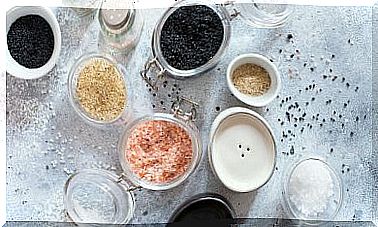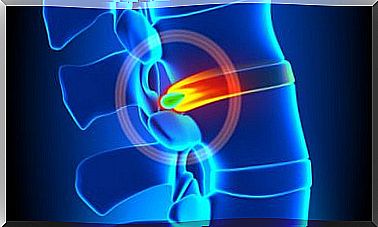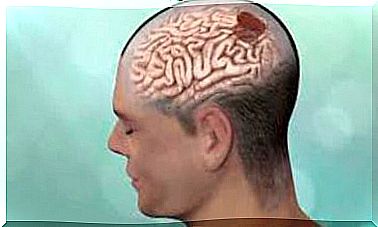Situations In Which You Cannot Breastfeed
Do you know when to avoid breastfeeding? Find out here which diseases would prevent breastfeeding. Do not miss it!

The World Health Organization (WHO) recommends giving babies a diet based on exclusive breastfeeding until at least 6 months of age. Now, you are probably wondering if there are situations in which you cannot breastfeed. Unfortunately yes. Join us to discover them.
7 situations in which you cannot breastfeed

In general, the mother can breastfeed the baby even when she is sick, as long as it is not one of the diseases that we will describe below, is in danger of her life or needs medication that can pass through the milk.
In fact, the Marina Alta Hospital in Denia has published a website with the compatibility of the different common medications for mild illnesses (flu, angina, gastroenteritis, cystitis) with breastfeeding: e-lactation .
However, what happens when the mother needs hospitalization or has a serious infection? Next, we will discover together those situations in which you cannot breastfeed.
1. Human T-cell eukemia
Human T-cell leukemia is caused by a retrovirus. Once it has managed to infect a cell, it uses an enzyme to convert its RNA into DNA and mix with the host cell’s DNA and multiply. This infection can be passed from mother to baby through breastfeeding. And this is evidenced by this study published in Acta Pediátrica Española .
2. HIV virus
It has been proven (as we can see in the study that we have just mentioned) that the HIV virus passes through breast milk, for this reason, it is recommended to suspend breastfeeding when the mother is infected by the virus.
However, different ways to allow breastfeeding by carrier mothers are currently being studied. However, research on the action of retrovirals and the safety of treatment is still lacking.
3. Galactosemia, one of the situations in which you cannot breastfeed
This disease is characterized by the inability of the child to digest galactose, one of the sugars that make up lactose and which is present in breast milk. It is a rare hereditary disease that can damage a child’s liver and central nervous system.
There are three classes of galactosemia, but their diagnosis is extremely difficult. Although those with peripheral or intermediate galactosemia could consume certain levels of galactose, since the exact type of the disease cannot be determined, it is generally advisable to exclude galactose from the diet by discontinuing breastfeeding.
4. You are pregnant and have bleeding

Another of the situations in which you cannot breastfeed is if you are having a risk pregnancy. If your pregnancy is not risky, doctors generally argue that it is not necessary to give up breastfeeding. However, when there is bleeding or the threat of premature labor, it is usually recommended to stop breastfeeding.
5. Cytomegalovirus
The data on whether you can breastfeed if you are a carrier of cytomegalovirus are controversial. Some studies indicate that the transmission of this virus through breast milk could cause severe damage in premature babies. However, there is no conclusive information.
Research indicates that freezing breast milk may help inactivate the virus and allow the baby to feed safely. Check with your doctor about it.
6. Situations in which you cannot breastfeed: use of medications
The habitual intake of certain drugs is considered incompatible with the maintenance of breastfeeding. This is the case for those who take anxiolytics, antiretroviral drugs, migraine drugs, or sleeping pills. The same is true with chemotherapy. Consult with the specialist to obtain an informed and adequate opinion of your personal situation.
7. Addictions
Alcohol and drug addiction are two situations with which you cannot breastfeed. In fact, it is advised to give up alcohol and drug use even before seeking pregnancy.
Diseases that do not prevent breastfeeding

Except for the diseases mentioned above, the other diseases would not prevent breastfeeding, unless there is a medical contraindication. However, consult your doctor if you suffer from any of the following diseases:
- Hepatitis : Hepatitis B and C viruses are not transmitted through breast milk. In the first case, when the mother is a carrier, the newborn usually receives the vaccine against the disease and the specific immunoglobulin to avoid contagion.
- Chagas disease : the data in this regard are not conclusive, but the latest WHO studies indicate that breastfeeding should not be suspended by Chagasic mothers.
- Mastitis : inflammation of the mammary gland is quite common in nursing mothers. Breastfeeding should not be stopped; in fact, the suckling of the baby helps to resolve the discomfort.
- Tuberculosis : according to data from the Spanish Association of Pediatrics, breastfeeding would not be contraindicated.
- Chickenpox : Doctors generally suggest continuing breastfeeding and monitoring the newborn. In fact, the little varicella immunogammaglobulin can be given.
- Breast operation : if you have had a breast surgery, either to enlarge or reduce them, you can breastfeed without problems. Of course, milk production can vary from one woman to another.
Asthma, allergies, hiccups and hyperthyroidism are not diseases that prevent continued breastfeeding. However, as we always say, always consult with your doctor for your particular situation. No one can advise you better than he.









